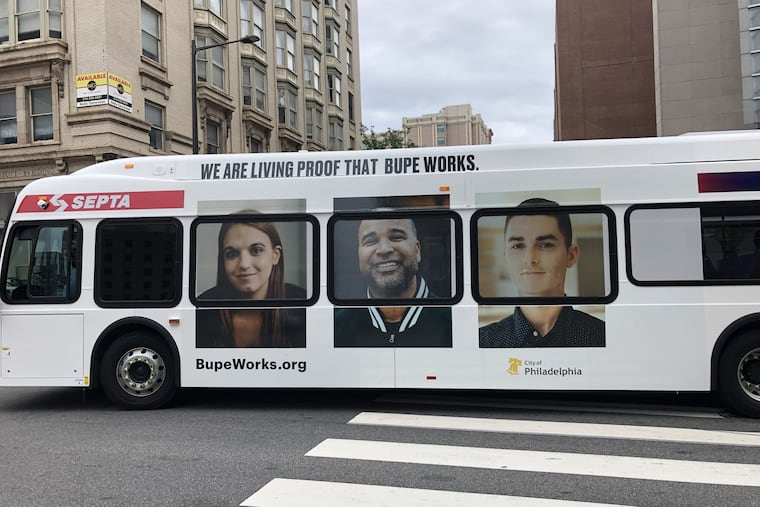Framing addiction as a disease: Research shows that message might backfire | Brain Trust
A new column focusing on research that's useful to Philly tackles a study on how we talk about addiction.

Last year, I left my job (and career track) as a researcher at Temple Law to join The Inquirer as an opinion writer — but I still love to nerd out with interesting research or a good study. That’s the impetus behind Brain Trust, a new biweekly column that will highlight recent interesting research that is relevant to or can have an impact on Philadelphia. If you have research that you want to pitch for Brain Trust, email me at agutman@inquirer.com.
The issue: For decades, people talked about addiction and drug use as moral failings, but today, the common framing — from activists to the mayor to the first lady — is that addiction is a disease. New research by Dr. Sarah Desmarais, professor of psychology at North Carolina State University, and colleagues suggests that this might not be the most effective message to motivate people to seek treatment.
The bottom line: “When you talk about substance use and many different reasons why people use drugs and alcohol, including but not limited to it being a disease, people were actually more likely to seek treatment," Desmarais says.
Moving away from describing addiction as a moral failing is a step in the right direction. The research was prompted by a concern that putting so much emphasis on addiction as a disease might be backfiring. According to Desmarais, “When we talk about something as being a disease, people might actually feel like they are less able to deal with it and thus less likely to try to do anything.”
Why does that matter to Philly? Philadelphia is in the midst of a drug-addiction crisis. The Department of Public Health estimates that 50,000 to 100,00 people in Philadelphia use heroin. And yet, at any given moment, close to 3,000 of the 12,500 slots that are capable of treating opioid use disorder with medications such as buprenorphine go unused.
The city’s health officials blame stigma for the empty slots. The use of medications to treat addiction is often viewed as “replacing one drug with another” or not achieving “sobriety.” These false notions are pervasive even among the community of people who use drugs and people in recovery.
To help address the stigma, the Department of Public Health and the Department of Behavioral Health and Intellectual disAbility spent $200,000 to launch a public awareness campaign featuring images and stories of Philadelphians in recovery that benefited from the use of the medication buprenorphine, “bupe.” The slogan of the campaign is Bupe Works.
How did the researchers study this question? To test if the message that “addiction is a disease” is backfiring, the researchers randomly split a group of more than 200 people who were screened for substance use into two groups. The first group read an article about addiction that framed it as a disease. The second group read an article that emphasized that there are many explanations for addiction -- a disease is only one of them. Then all participants answered a questionnaire.
The researchers found that people who were exposed to messaging that explained drug use and addiction as having many reasons were more likely to be motivated to seek treatment. “People who received the message that addiction is due to a lot of different reasons and that it was actually something that they could change, were more likely to see addiction as being changeable.” This group was more likely to say that they would pursue counseling or cognitive behavioral therapy when compared with the people who received the “addiction is a disease” message. Both groups were as likely to be willing to pursue medication.
Back to Philly. Messaging broader than “addiction is a disease” increases motivation to seek treatment because it suggests addiction is changeable and not a fixed state. So how do we evaluate the Bupe Works campaign? Desmarais says that it’s a step in the right direction to emphasize that addiction is changeable. But the emphasis on the medication might miss some people because it assumes that “people are thinking about [addiction] as a disease and something that could be treated with medication.” A broader message might engage more people, who can then learn more about medications that might benefit them.
The takeaway: Moving away from “addiction is a disease” to a message that is closer “addiction is really hard, there are many reasons for it, but you can do something about it” could resonate with the many people who don’t think of themselves as sick -- or who associate a disease with something that can’t be changed.
Brain Trust is a new biweekly column that looks at how new research affects Philly. Ideas? Suggestions? Email Abraham Gutman at agutman@inquirer.com.